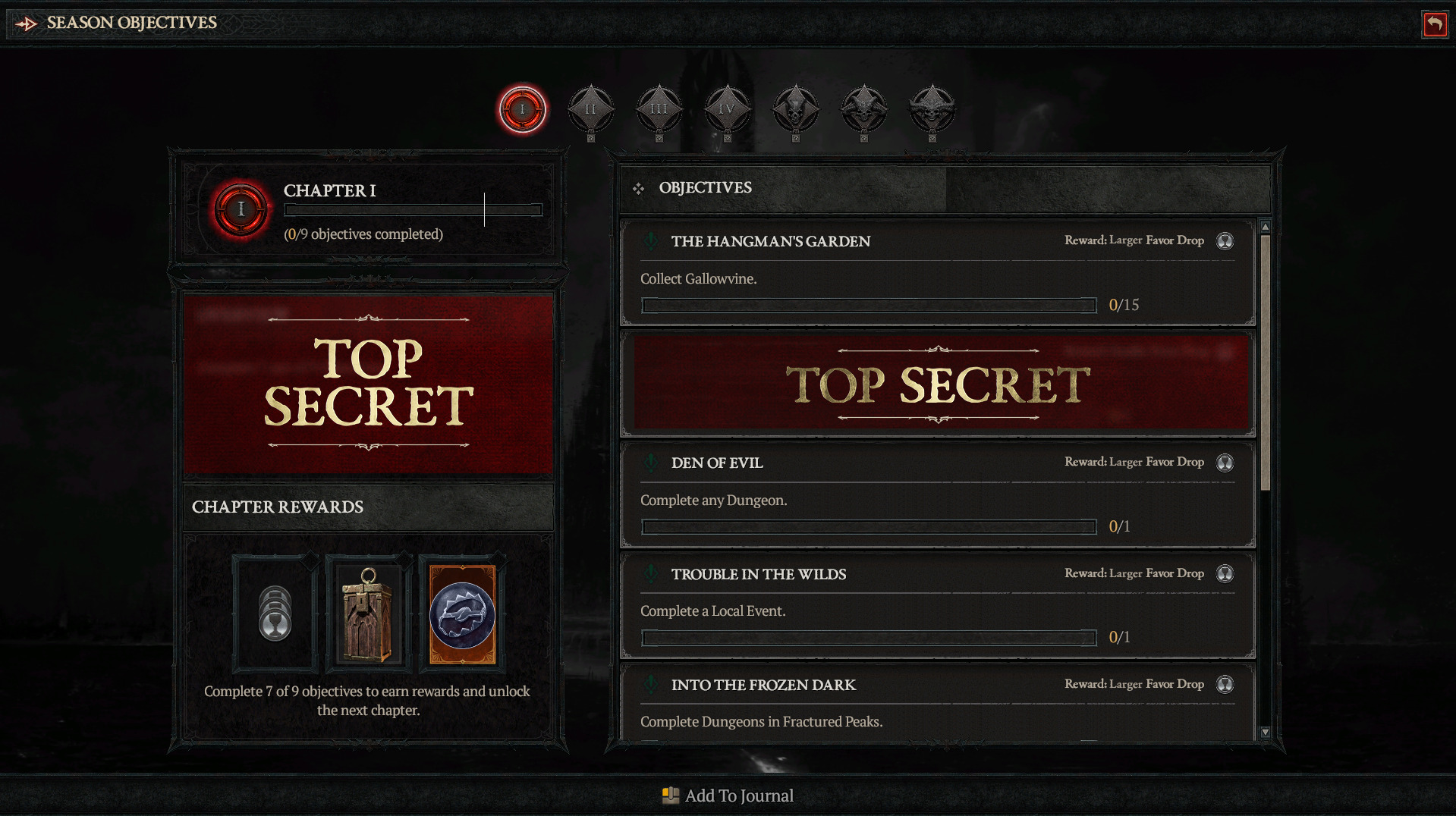Diablo 4 seasons will add "fresh concepts and ideas" four times a year
Diablo 4 will begin its seasonal content in July and introduce "fresh concepts and ideas" four times a year going forward, Blizzard said in a comprehensive breakdown published Wednesday.
In a new developer livestream and accompanying blog post, the Diablo 4 team gave a detailed overview of the long-awaited sequel's post-launch plans, including its seasons, free and paid battle passes, the in-game shop, and more. Let's dig into it.
There will be four Diablo 4 seasons per year, with the first one beginning sometime in mid to late July. Each season will have its own unique theme, and while Blizzard didn't get too much into specifics, it did confirm the first season won't be zombie-themed as some have speculated. The theme of the first season will be discussed in detail at some point after launch.
Each season will have its own self-contained questline that'll guide players through newly introduced mechanics and introduce them to new and old characters alike, but it'll only become available once you've completed the main campaign. There will also be new unique items and powers added every season, and once that season is over they'll be added to the "Eternal Realm," which is just Blizzard lingo for the normal base game.
Within Diablo 4's seasonal structure is something called Season Journey, which Blizzard likens to "the North Star" in the night's sky. Basically, it'll tell you what you need to do to quickly level-up your battle pass, which will involve completing objectives that make up chapters.
Finishing a chapter will earn you seasonal rewards like crafting materials and Legendary Aspects for your Codex of Power. Completing objectives will also reward you with Favor, the in-game resource - which can also be earned by doing quests and slaying monsters in the main campaign - you can use to level-up through tiers in the battle pass.

As for Diablo 4's battle pass, there will be three levels: the unpaid track, the $10 Premium track, and the $25 Accelerated track, which includes everything in the Premium track plus 20 tier skips and a special cosmetic.
The free battle pass will have 27 tiers you can play through to earn cosmetics and Smoldering Ashes, a currency you'll be able to exchange for Season Blessings, which can take the form of XP, gold, or Obols boosts and are designed to help you plow through the battle pass.
"Pay to win," I can already hear some of you cry out, but Blizzard assures Smoldering Ashes and Season Blessings are only available in the free tier, and there will be certain level requirements to earning Smoldering Ashes so that folks can't just buy tier skips via the paid battle pass and get them that way.
If you want to pay for the Premium battle pass, well firstly, Blizzard is adamant that you won't be gaining any in-game power by doing so. You will earn special cosmetics unique to each season and unlock the Platinum currency, Diablo 4's premium currency which can only be bought using real-world money and which can only be used to buy even more cosmetics.
Finally, the shop. Oh, the shop. The (hopefully) much less problematic version of perhaps Diablo 3's most controversial feature. Diablo 4's shop, like its long-dead predecessor, is a place where you can spend real-world money on in-game items. The big difference here is that Diablo 4's shop only includes cosmetics, so you can't buy armor or weapons or anything that'll affect your stats or powers.
"The Shop is intended to be an avenue of self-expression for our players, and they can interact with it as much or as little as they desire during their time in Sanctuary," Blizzard says.
Items sold in Diablo 4's shop will rotate on a regular basis and will be intelligently catered to "the wanderer you want to become." You'll also be able to closely inspect any item you might want to buy before you pull the trigger, ideally avoiding any buyer's remorse.
All in all, Diablo 4's post-launch plans are pretty darn standard for a live-service game. Not in the sense that they aren't compelling or thoughtfully designed, just in the sense that, at least on paper, they look a lot like most online games with seasonal structures and battle passes and all that jazz. What remains to be seen is whether there's anything sneaky hidden in the fine details that players will interpret, rightfully or otherwise, as allowing people to pay to win. The mobile Diablo Immortal caught a lot of flack for that sort of stuff, but hopefully the mainline installment, with its AAA price tag, will avoid all that.
Here are some games like Diablo to play until Diablo 4 launches on June 6.

No comments